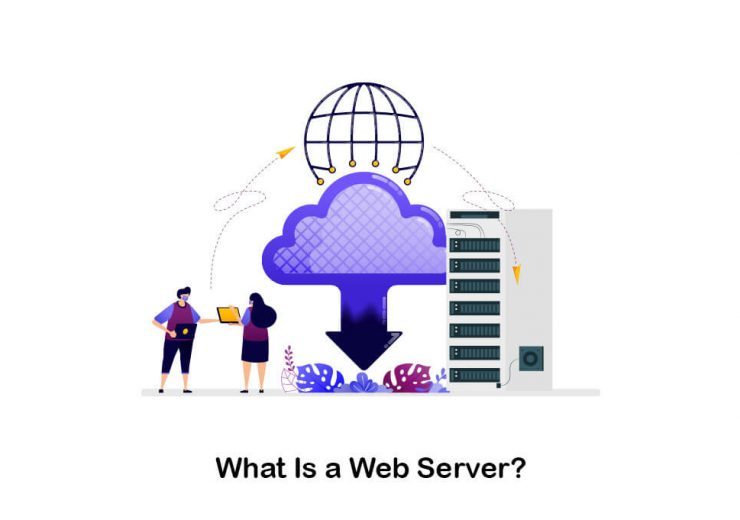What is Hybrid Cloud? | What are the benefits of hybrid cloud
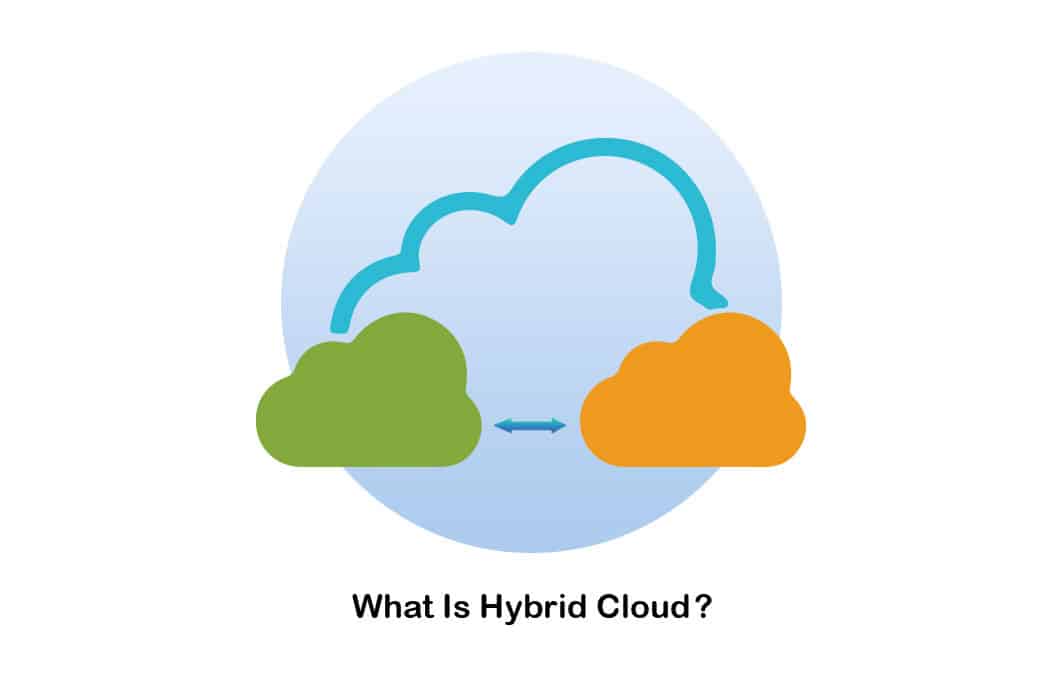
Table of Contents
Before you go ahead with the hybrid cloud concept, you will need to figure out what does hybrid cloud mean. This article will share a better picture of what hybrid cloud is all about. Based on that, you can decide whether you need to go ahead with it or not. you will read all about what is hybrid cloud as follows:
What Is Hybrid Cloud?
In simple terms, a hybrid cloud is a cloud computing environment, which uses public cloud services, third-party cloud services, and private cloud services. You will discover a great orchestration in between these cloud environments. A hybrid cloud would usually connect to the public cloud from the on-premises data center. However, this connection can also contain numerous private assets, including other clouds and edge devices.
What is hybrid cloud computing?
Hybrid cloud computing is a strategy that can use the public and private clouds connected. This System can permit the public cloud to manage the process.
If you want to see cloud hosting packages , click here.
What is hybrid cloud architecture?
Hybrid cloud architecture combines two or more cloud computing models, such as public cloud, private cloud, or on-premises infrastructure. It allows organizations to leverage the benefits of both public and private clouds while maintaining control over their data and applications.
In hybrid cloud architecture, some data and applications are stored and processed in a private cloud, while others are stored and processed in a public cloud. This enables organizations to take advantage of the scalability and cost-effectiveness of the public cloud for non-sensitive data and applications while keeping sensitive data and applications in a private cloud for better security and compliance.
The hybrid cloud architecture also allows organizations to use their existing on-premises infrastructure as part of their cloud strategy. This can be useful for organizations that have invested heavily in their data centers and want to continue using them while taking advantage of the benefits of the cloud.
One of the key advantages of hybrid cloud architecture is its flexibility. Organizations can choose which data and applications to store and process in each environment based on their needs. For example, they may store customer data in a private cloud for better security while using a public cloud for less sensitive data such as marketing analytics.
Another advantage of hybrid cloud architecture is its ability to handle spikes in demand. When an organization experiences a sudden increase in traffic or usage, it can use the public cloud to scale up its resources and meet the demand quickly. Once the demand subsides, it can scale back down to save costs.
How Does Hybrid Cloud Work?
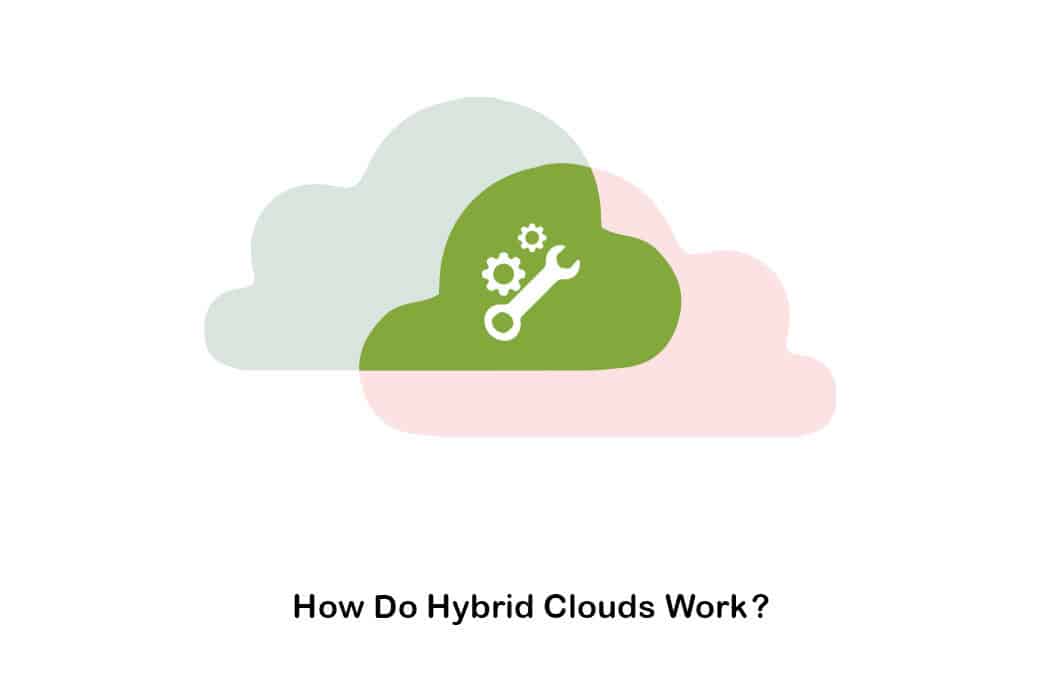
Now you know what the hybrid cloud is all about. While keeping that in mind, let’s figure out answers to the question, “how do hybrid clouds work”. When it comes to a hybrid cloud model, businesses will deploy their workloads within the public clouds or private IT environments. Then they will move in between these two types of clouds. This will happen based on the computing needs.
Moreover, changes in cost tempt people to switch between the two cloud models. This offers additional deployment options to the businesses along with better flexibility. On top of that, a hybrid cloud would contain hosting, network, and even the web service features that come along with an application
As you learn more about a hybrid cloud, you should also be aware of the differences between the multi-cloud model and the hybrid-cloud model. A single environment is created to operate on-premises when it comes to hybrid cloud. It will have public cloud resources and private cloud resources. Google, Microsoft, and AWS offer hybrid clouds for the people who require them. But when it comes to a multi-cloud, you will be able to discover two or more service providers. There is no need to have an on-premises or private component.
If you aim to know more about what is PaaS?, click on the link provided!
Hybrid Cloud Benefits
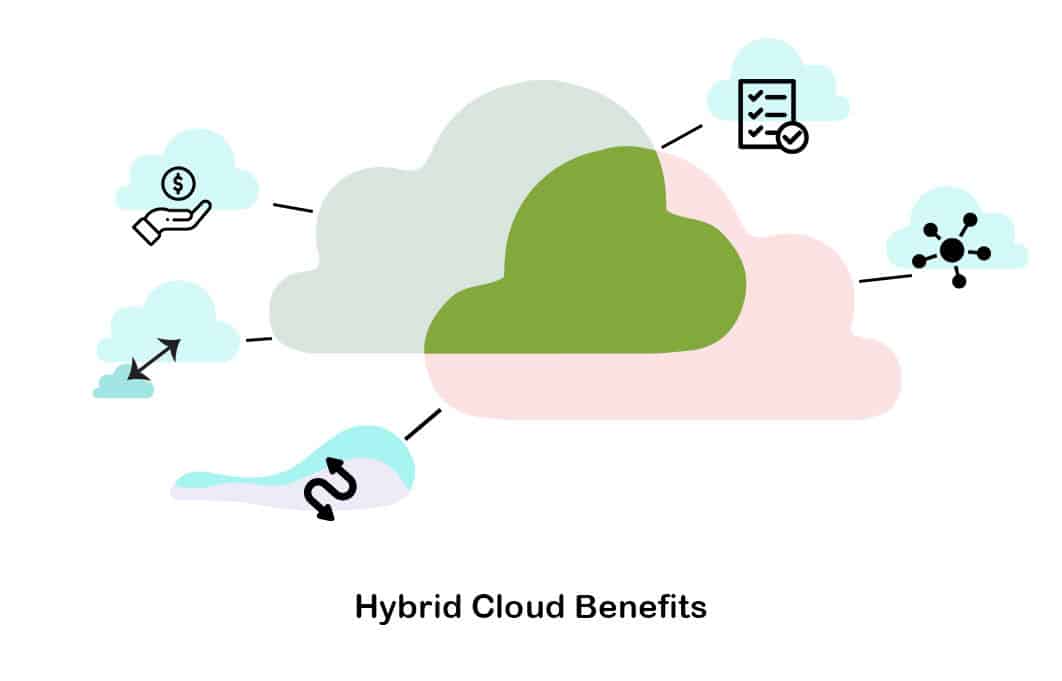
Hybrid cloud benefits are quite impressive. Therefore, you will need to take a look at the benefits and decide if you are going forward with it or not. Following are some of the most prominent benefits that come along with the hybrid cloud.
Flexibility
Flexibility is one of the most prominent benefits that you can get out of the hybrid cloud. Your business would work with different types of data in many different environments. A hybrid cloud can assist you with it by adjusting to your infrastructure. That’s because you will continue to use the systems before using the cloud technologies. There is no need to keep yourself fully committed to the vendor. Hence, your business will be able to migrate the workload as well as infrastructure to the public cloud of the vendor whenever you need it.
Scalability and agility
You will be able to get better resources with the help of a hybrid cloud. The resources you can get are much better when compared to what you can have with a physical data centre or a public cloud provider. For example, you will proceed with provisioning without a problem. On the other hand, you can scale the resources per the demand spikes. If there is a situation where the demand for a local data centre exceeds, you can quickly scale up the capacity and accommodate requests.
Cost management
You can get a helping hand with cost management when using the hybrid cloud. If you operate a data centre on your own, you will have to invest a lot of capital. However, the resources in a public cloud are variable. You can mix in between these two options when you go ahead with the hybrid cloud. Therefore, you can expect to get your hands on the most cost-effective solution.
If you want to know best web hosting panel This post can help you!
Compliance
You need to adhere to compliance standards as you store your data and data of your customers. This is the main reason why you cannot move all of your data to a public cloud. However, this doesn’t mean that you should keep yourself away from experiencing the benefits of public cloud. You will be able to relevant data in your private cloud and move the rest to the public cloud. This will eventually assist you to cater to the regulatory requirements. On top of that, you can receive the benefits that come along with elasticity of the cloud.
Interoperability
Once you start using a hybrid cloud, you will be able to run your workloads in the public cloud and the private cloud. This will assist you in the running redundantly. This will help you to get the most out of interoperability as well.
If you aim to know more about VPS vs Cloud Hosting , click on the link provided!
What is Hybrid cloud example?
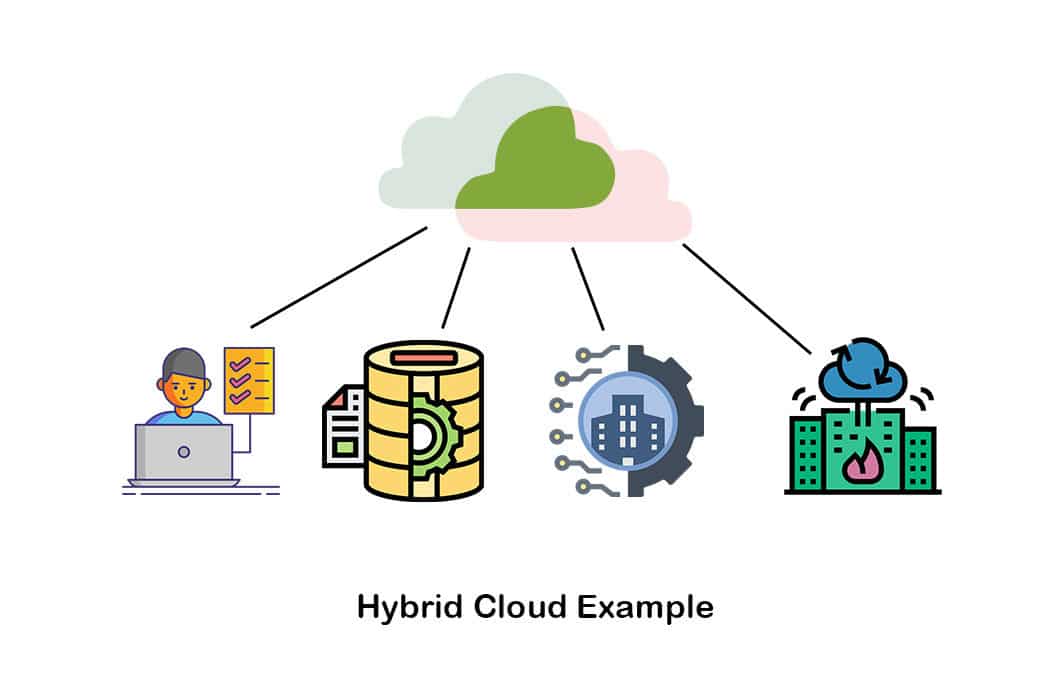
If you are impressed by the advantages of a hybrid cloud, you need to look at the example situations where you can use a hybrid cloud. Then you can decide whether it is the best cloud model available for you to consider or not.
Digital transformation
A hybrid cloud will help you proceed with digital transformation needs without any challenge. That’s because you will be able to keep all the legacy data in the private cloud. Then you can go ahead with deploying other applications on the hybrid cloud. You will retain specific applications on-premises and streamline the digital transformation.
Disaster recovery
You can get much-needed assistance during disaster recovery from the hybrid cloud. That’s because the hybrid cloud will help you replicate data in the cloud that was failed for some reason. To experience the most out of this benefit, you should be careful with taking your backup. If you can seek the assistance of an expert, you will be able to do it without a problem.
Data processing
When you are using a hybrid cloud, you will be able to access the robust public cloud services to process your data. Hence, you will not have to worry too much about the limited resources for data processing.
Development and testing
You can experience faster and cheaper development and testing with the help of a hybrid cloud. For example, you don’t have to invest your money to buy private cloud resources for products. There is no need to spend a lot of time with limited resources. You can look at the public cloud and get the most out of available resources.
click here to know more about what is the difference between multicloud and hybrid cloud
Conclusion
Now you have a solid understanding of hybrid cloud benefits. Instead of sticking to a private or public cloud, we strongly encourage you to proceed with a hybrid cloud. Then you can expect to receive the benefits linked with both private cloud and public cloud. On the other hand, you can also stay away from the drawbacks associated with them. This is something impressive to keep in mind.




